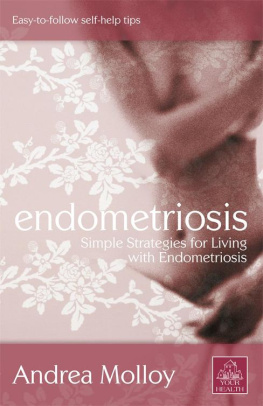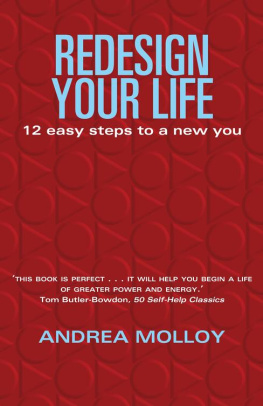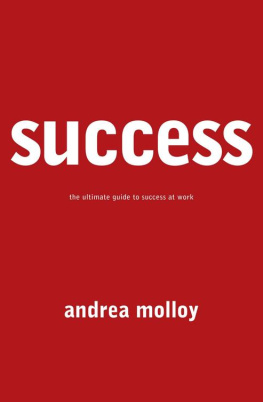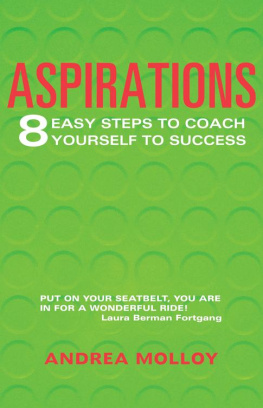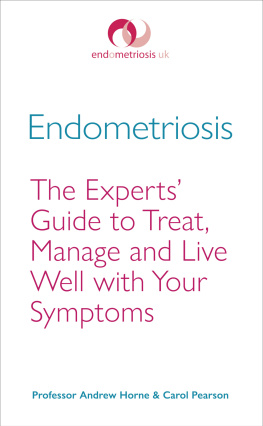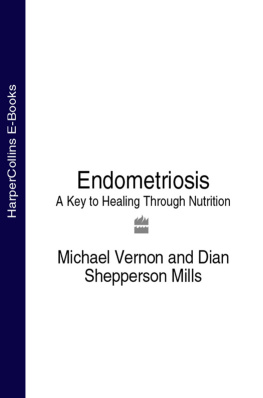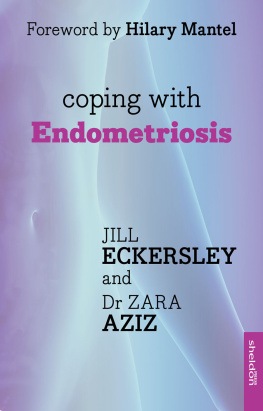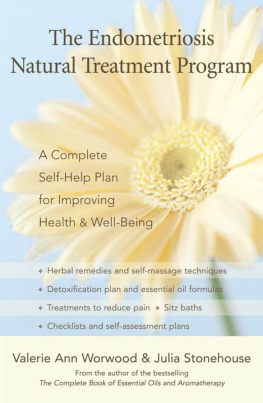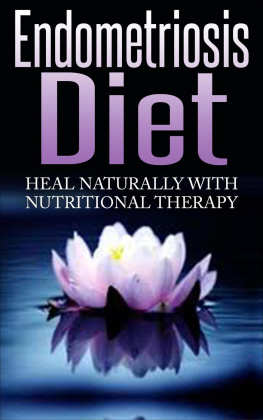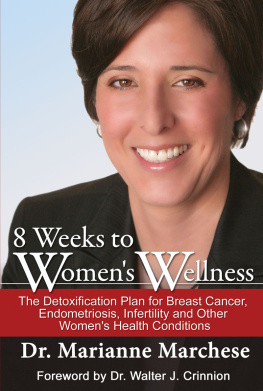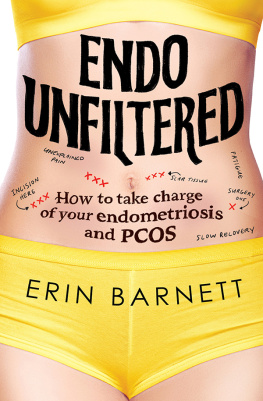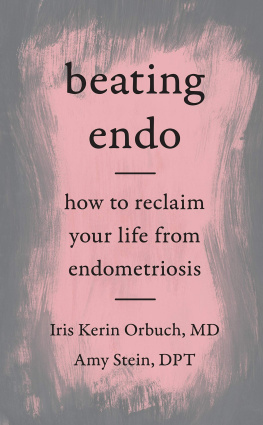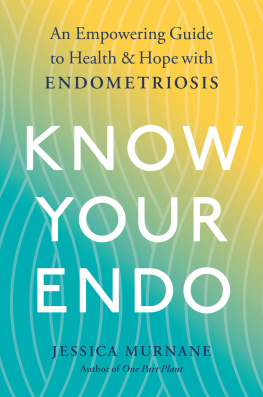Naturally, my family deserve special thanks for their practical and emotional support with regard to both my writing and my health. Thanks Trish, Kerry, Nicola and Graeme you are superstars! I also greatly appreciate the assistance of the specialist gynaecologists and other health professionals whom I have surveyed and interviewed for this book. I would especially like to thank the New Zealand Endometriosis Foundation for their encouragement, particularly their Chief Executive Officer, Deborah Bush QSM. Most importantly, I would like to express my gratitude to the hundreds of women who have shared their stories in the hope that others will learn from their experience. There were too many to include in the book and it was difficult to choose which stories to put in my thanks to you all. Thanks also to everyone at Random House for realising that endometriosis affects so many New Zealand women and their families, and the need for a book on this subject alone.
M ore than 300 years after endometriosis was first recorded in the medical literature, many unacceptable statistics, myths and unknowns still exist. Thankfully, there has been a global resurgence of interest in endometriosis over the last two decades. At last, women who have experienced this often incapacitating disease have the opportunity to be heard, diagnosed, treated appropriately and managed so symptoms do not continue to compromise their lifestyles, sexuality and/or fertility. Renewed interest also means that patient symptoms are being translated into research, leading in turn to new clinical and holistic solutions.
While the aetiology of endometriosis is still to be proven, there have been major advances in its treatment and management. New drugs and non-invasive diagnostic tests are also on the horizon. But until more is known, a combination of laparoscopic surgery (to excise the disease), self-help coping strategies and a multi-disciplinary approach are currently accepted by those specialising in the area as the gold standard. This individualised approach provides those who have endometriosis with the best possible options to enable them to assume regular lifestyles. There is now choice for girls and women so they can receive best-practice treatment and, more excitingly, this is available in many regions of New Zealand.
There is so much we dont yet understand about endometriosis, but we do know that there is a continued need for awareness, education, support services and research, because endometriosis is so much more than just a pain. It can make life miserable and cause symptoms that have far-reaching effects on quality of life and fertility. Many women are left feeling totally frustrated, isolated and disempowered. This reflects not just in poor personal health, but impacts in the social, scientific, clinical and medical environs.
It is timely for all girls and women with endometriosis to develop a plan that includes seeking the best available treatment from health professionals and engaging self-help strategies to ensure their condition is managed in the most effective way. This is a positive way of regaining control over your own health and body, which a chronic condition like endometriosis often undermines.
I urge every woman with endometriosis to seek the most appropriate help available, and to explore treatment and management options that will aid their well-being and give renewed vigour to their lives.
Endometriosis: A New Zealand Guide personalises the authors journey. However, it is not just about one womans triumph over this often debilitating disease. Andrea has created an opportunity for women throughout New Zealand to share their experiences and advice, and to express their emotions and responses to treatment. What makes this book unique is that it is balanced with the views of a highly respected team of physicians specialising in endometriosis in New Zealand. It also provides women with the knowledge to choose and challenge treatment options. After all, specialist gynaecologists continually engage in this type of discussion with their colleagues in order to achieve best practice.
While this is a book with a clear New Zealand focus, the information reflects global thought and the stories shared could be recognised by women the world over. Andrea has written an informative and comprehensive guidebook to endometriosis which includes easy-to-follow self-help tips. As a result readers will feel much more knowledgeable about treatment, and be able to become actively involved in disease management. While the book flows in a logical sequence, each chapter can stand alone depending on the specific needs of the individual, making it a helpful resource. Accessing quality information enables women to make decisions that have the potential to have a profound effect on their lives. I am sure this book will provide inspiration to those with endometriosis and will be a well-read resource for all.
Strength through support
M te tautoko, ka whai kaha, ka ora
Deborah Bush QSM
Chief Executive, New Zealand Endometriosis Foundation Inc
Patient Advisor, The Oxford Clinic Endometriosis Centre,
Christchurch
Note:The New Zealand Endometriosis Foundation Inc is a registered charitable trust formed to provide education and information and to encourage research. It works with health professionals to foster and support women, girls and families living with endometriosis.
Optimism is the faith that leads to achievement; nothing can be done without hope and confidence.
Helen Keller
M ention endometriosis to anyone and I guarantee they will have a friend, colleague, mother, daughter or sister who suffers miserably each month. Just a few decades ago, endometriosis was not openly discussed, but now it seems it is on the tips of everyones tongues. While some people may still not know exactly what it is, many of us certainly know women who suffer from it. For approximately one in five women who have periods, it is a living nightmare that can rule their lives. Intense pain is an understatement of their experience and only part of the equation that is endometriosis.
In overview, endometriosis is a condition where cells similar to those that usually line the uterus grow on other areas, like the ovaries, fallopian tubes, bowel and bladder. This can in turn cause pain and inflammation on a monthly basis when hormone levels change. Symptoms vary between women and in their severity, but can include pain mid-cycle, during periods, with sex, when urinating, bowel problems and symptoms related to PMS (premenstrual syndrome). Symptoms can also occur intermittently through the month as well. Endometriosis can be a debilitating condition for the many women who experience severe pain, while other women may not be aware of the condition unless their fertility is challenged. The key difficulty in treating endometriosis is that both the cause and a definitive cure remain unknown.

